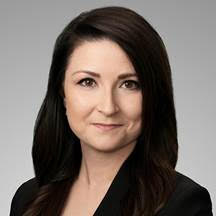Akin Gump recently expanded its tax practice with the addition of Dallas partner Julia Pashin from Shearman & Sterling.

Pashin specializes her tax expertise in the energy sector, representing public and private oil and gas companies, midstream companies and private equity firms on upstream oil and gas asset acquisitions and divestitures, drilling joint venture transactions and midstream joint ventures.
“We recognize that in a particularly competitive market, our clients are increasingly turning to us to provide creative and innovative deal structures, and the tax advice Julia provides will play a big part in that,” Stuart Leblang, co-head of Akin Gump’s tax practice, said in a statement. “She will work closely with Alison Chen and will add even more depth to our robust tax practice in Texas.”
The Texas Lawbook visited with the SMU Dedman School of Law graduate about her move.
The Lawbook: Why did you make the move to Akin Gump?
Pashin: The move to Akin Gump presented an opportunity to add value on Day 1 for an established and growing energy transactions team and to develop a more specialized tax practice with deeper ties to energy clients in Texas and nationally. The breadth of Akin’s corporate and tax practices lends itself to the kind of specialization I was looking for.
The Lawbook: Have you worked with or across any of your new Akin Gump colleagues?
Pashin: Yes, I worked fairly regularly opposite Akin Gump tax partner Alison Chen and her colleagues on several energy transactions, both while I was practicing at V&E and later at Shearman.
The Lawbook: What are the emerging trends or key developments in your tax practice that you are closely following?
Pashin: The energy transition is top-of-mind, and it’s been exciting to track clean energy and 45Q incentives, as well as possible changes to tax incentives currently available to more traditional upstream oil and gas producers and investors. We are monitoring other potential tax legislation changes and rate increases that may impact tax planning for energy companies and investors at all levels of the capital structure. The ability to work in collaboration with Akin Gump’s tax policy team will be a great resource to clients in that respect.
The Lawbook: Is there anything else you would like to add?
Pashin: Throughout this process, Akin Gump’s culture set the firm apart. The firm’s leadership is intentional about fostering a work environment that is professionally excellent and genuinely kind, inclusive and down-to-earth. This resonates with me, and I hope to further strengthen that culture.
